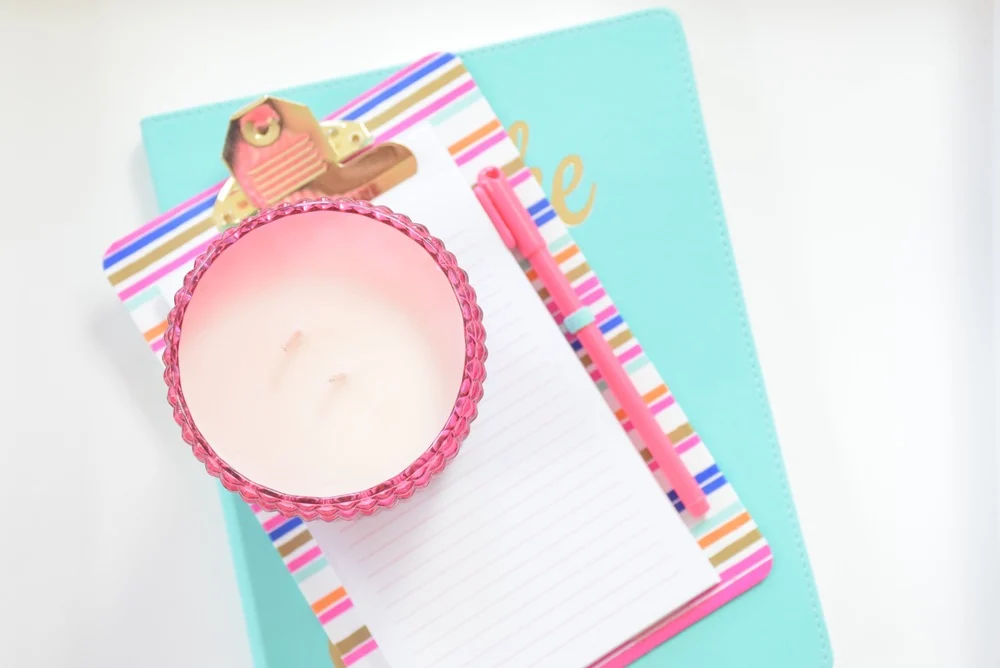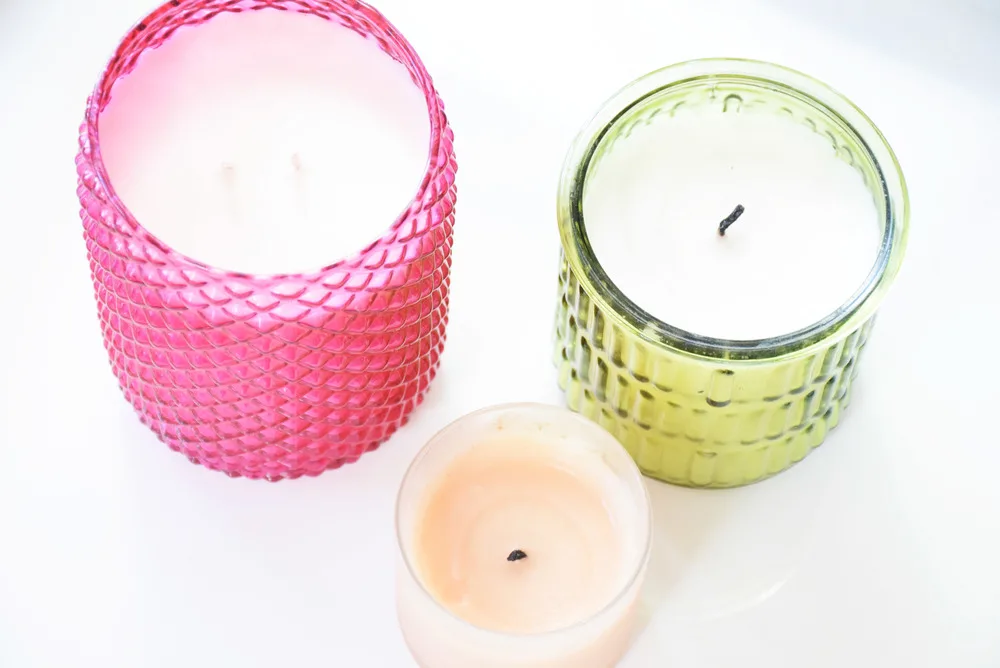When I first started a blog in 2014, I didn’t have a clue what I was doing. I’ve learned the ropes over the years, but this newer industry can still come chock full of confusion — especially when influencers with some of the largest followings aren’t even abiding by the rules of blogging (some of which could get you into trouble with the law…).

Whether you’re a new or seasoned content creator, it’s important to abide by the industry standards that govern this unique line of work. Check out the rules of blogging below, and test yourself.
Are you really following all the rules to a tee?
What could you do to further improve the professionalism of your brand?
Blogging etiquette is a thing, and doing the homework now will only help you in the future as you establish your network, grow your following, and land the brand deals that ultimately turn your blog into a business.
Read: How to Start a Lifestyle Blog
1. Disclose Your Sponsorships
Refusing to disclose sponsored posts isn’t just sneaky; it’s illegal.
Though there’s been some crackdown on celebrities and influencers with large followings that fail to disclose brand partnerships and paid posts, it’s still entirely common to see vague and generally undisclosed brand deals (especially within your Instagram feed!).
A reader should never have to guess whether you’re being paid to promote a product.
And again, it’s against the law to fail to disclose this!
Tactics like hiding #ad within a string of other hashtags or within the comments on an Instagram post is just as shady as not disclosing at all.
It should always be clear to the reader when a post is sponsored by a brand, even if it means you won’t reach as many of your followers with your post or get as many likes (#instagramisannoying).
It’s never worth jeopardizing your readers’ trust just for a paycheck.
Take it from someone who isn’t just a blogger, but is also an avid consumer of influencer content.
I bought a skincare product an influencer had recommended last year, without realizing it had been sponsored (it wasn’t disclosed in the post on Instagram stories).
Once I found out she had been compensated, I felt totally cheated. I probably would have bought the product even if she had disclosed that it was sponsored, but knowing that she chose not to disclose this information just felt…well, slimy.
2. Disclose Your Affiliate Links
Along with failing to disclose paid partnerships, another issue running rampant in the blogging community is the lack of disclosure for affiliate links.
If you’re making a commission off of someone purchasing a product through your link, that’s a form of advertisement.
This is one of those rules of blogging that a lot of content creators don’t even realize. In fact, I only knew it because I took the course Making Sense of Affiliate Marketing (P.S. this is my affiliate link).
For those of you who haven’t heard of this course, Making Sense of Affiliate Marketing goes over in depth how blogger Michelle went from making $0 to over $50,000 per month in affiliate income.
She covers all the best tried and true strategies from getting started with affiliate marketing, all the way up to actually making sales and growing your passive income.
One of the other things she also stresses in this course is the importance of disclosing your affiliate links.
Even though they’re not sponsored posts, affiliate links should still be disclosed.
Think about it…you’re still doing advertising for a product/brand, and you still have the potential to earn a kickback off of it if someone makes a purchase.
Pretty similar to how a sponsored post works, huh?
That’s exactly why it’s so important to disclose the relationship between you and the brand, the transparency in which should also establish more trust between you and your readers over the long run.

3. Utilize “No Follow” Links
Did you know that it’s against Google’s terms of use to use “Do Follow” links for sponsored and/or affiliate links?
For those of you who don’t know, “Do Follow” links are essentially those that will count towards another site’s backlinks. Backlinks are links from another website that typically help the site that’s being linked to rank higher in Google.
Basically, the more people that link to a post the more Google thinks of it as a quality, authority article that should rank higher in the search engine.
The only problem is that Google doesn’t allow people to pay for these links. Therefore, sponsored posts and/or affiliate links cannot be coded as “Do Follow” since you’re technically able to capitalize on placing them within your site.
SEO plays a huge role in generating traffic for your blog, so you definitely don’t want to incur any penalties when it comes to search engines. You need to play by the rules.
If you’re not sure how to code for a “No Follow” link, you’re in luck — it’s super easy!
All you have to do is swap your link and the text you want it to be represented with in your post into a simple formula and paste it into the HTML editor within your WordPress blog post.
Easy enough, right?
4. Abide by Other Creator’s Terms of Use
Yes, you should actually read a blogger’s terms of use before snagging one of her photos or other creative properties.
And if you’re just using her photos for a roundup? Guess what? You still need to check her terms of use.
Some bloggers don’t want their photos on anyone else’s site. Period. No exceptions.
This is one of those rules of blogging that could not only save you some legal troubles, but it’s also just the right thing to do.
In return, you can expect that fellow bloggers will abide by your terms of use as well, unless you’ve granted them special permissions.
Oh, and never ever ever use a blogger’s photos out of context. It’s just not a nice thing to do!
A lot of time and effort goes into drafting blog posts, so always be thinking of the best and most respectful move when using someone else’s work.
There are plenty of free stock photo sites out there if you need images for your blog posts, so there’s no excuse for stealing copyrighted content.
5. Be Genuine
While foregoing this rule shouldn’t land you in any legal trouble, there are some rules of blogging that simply help establish a brand and promote authenticity.
Without them, you can’t expect a long lasting relationship with your audience.
That’s where being genuine comes in…
Commenting on other blogs and/or social media accounts can be a great way to boost your blog traffic and gain exposure.
However, make sure you’ve actually read the post before commenting, so you can leave a heartfelt response.
It’s easy to tell when a blogger is just trying to self promote. Those kinds of comments usually read “Nice. http://…” Not only is this rude, but it’s a waste of time because most people can pick out and easily avoid these blatant self promotions.
There’s also another side to comment etiquette: responding.
While bloggers who get a large volume of comments may not have the time to respond to everyone, the least you can do is respond to those who ask questions or leave long responses.
Everyone wants to know that their voice is being heard.
Appreciate your readers’ feedback just as much as you appreciate their page views.

6. Credit Your Sources
No matter if you’re piggybacking off of another blogger’s Motivational Monday or adapting a recipe from Pinterest, attribute your sources.
It doesn’t have to be much, just mention where you got the idea for the post.
Unfortunately, this is one practice that is currently lacking in the blogging community, but it’s nonetheless important.
Think about what your reaction would be if you saw that someone used your content without credit.
7. Don’t Sell Out
It’s easy to sell out once sponsored opportunities start coming in.
The opportunity to make money off of your blog is exciting, but not at the cost of losing your readers’ trust.
Only work with brands you genuinely like. This helps you to avoid trashing a company (not classy) or being completely dishonest with your readers to promote it (also not classy).
Your blog should never become a billboard, featuring more sponsored than original content.
It’s difficult to turn down opportunities, especially at the beginning, but it ultimately helps to strengthen your brand identity.
Not to mention, better opportunities will come.
